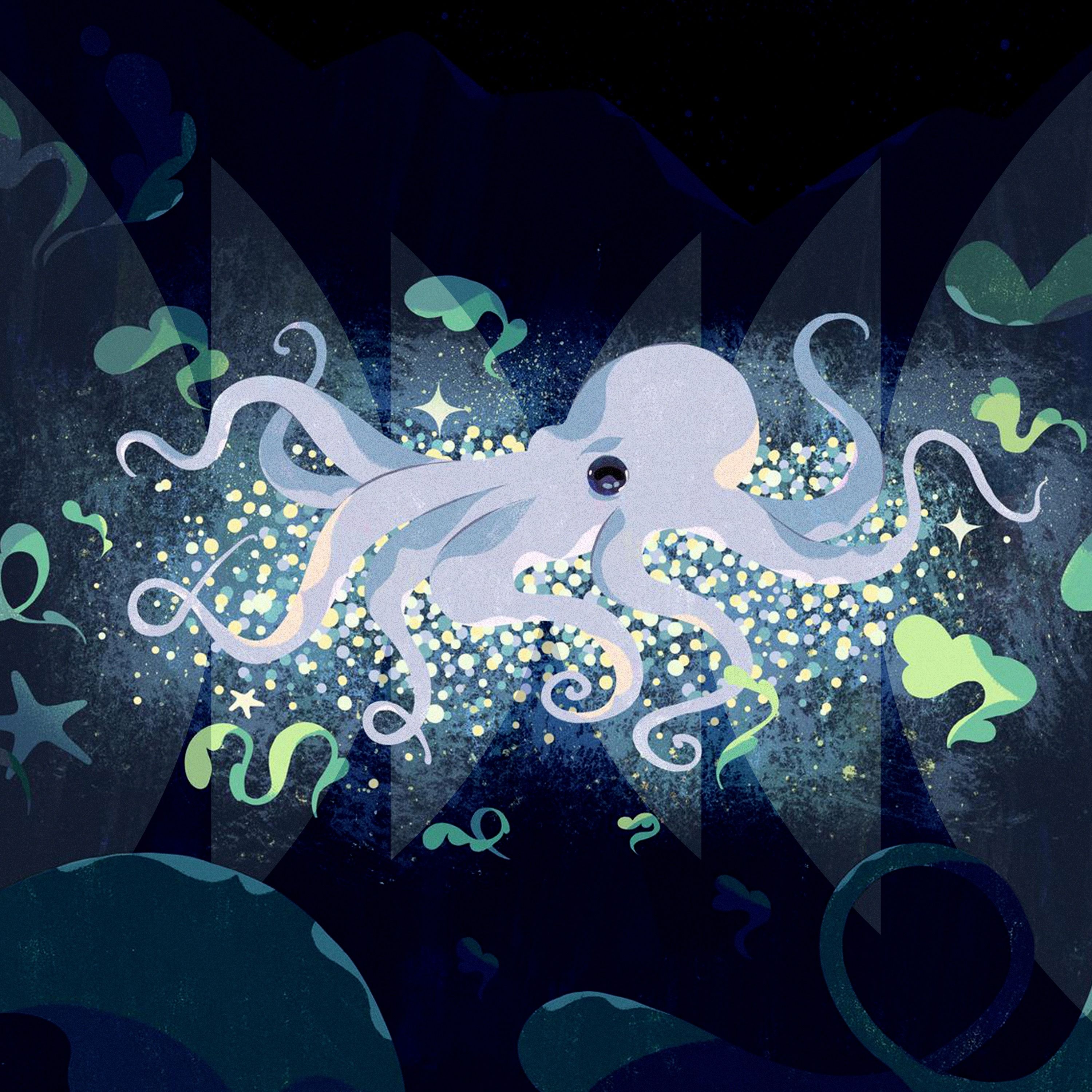
Deep Dive
- The octopus, nicknamed Octomom, brooded her eggs for over four years.
- She remained on her eggs without eating, warding off predators and cleaning the eggs.
- Deep-sea octopuses are not well-studied, so Octomom's behavior provided valuable insights.
- Octomom's brooding period is the longest ever recorded for any animal.
Shownotes Transcript
A mile under the ocean, we get to watch an octopus perform a heroic act of heart and determination.First aired back in 2020, this episode follows the story of an octopus living one mile under the ocean as she performs a heroic act of heart and determination.
In 2007, Bruce Robison’s robot submarine stumbled across an octopus settling in to brood her eggs. It seemed like a small moment. But as he went back to visit her, month after month, what began as a simple act of motherhood became a heroic feat that has never been equaled by any known species on Earth.
This episode was reported and produced by Annie McEwen.
Special thanks to Kim Fulton-Bennett and Rob Sherlock at the Monterey Bay Aquarium Research Institute.
Support Radiolab today at Radiolab.org/donate.
If you need more ocean in your life, check out the incredible Monterey Bay Aquarium live cams (especially the jellies!): www.montereybayaquarium.org/animals/live-cams
Here’s a pic of Octomom sitting on her eggs) (© 2007 MBARI), Nov. 1, 2007.
We have some exciting news! In the “Zoozve)” episode, Radiolab named its first-ever quasi-moon, and now it's your turn! Radiolab has teamed up with The International Astronomical Union to launch a global naming contest for one of Earth’s quasi-moons. This is your chance to make your mark on the heavens. Submit your name ideas now through September, or vote on your favorites starting in November: https://radiolab.org/moon)
Sign-up for our newsletter!! It includes short essays, recommendations, and details about other ways to interact with the show. Sign up) (https://radiolab.org/newsletter)!
Radiolab is supported by listeners like you. Support Radiolab by becoming a member of The Lab) (https://members.radiolab.org/) today.
Follow our show on Instagram), Twitter) and Facebook) @radiolab, and share your thoughts with us by emailing [email protected]).
Leadership support for Radiolab’s science programming is provided by the Gordon and Betty Moore Foundation, Science Sandbox, a Simons Foundation Initiative, and the John Templeton Foundation. Foundational support for Radiolab was provided by the Alfred P. Sloan Foundation.
